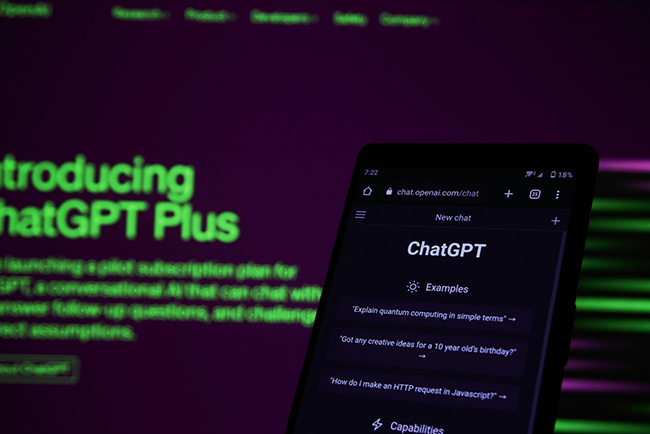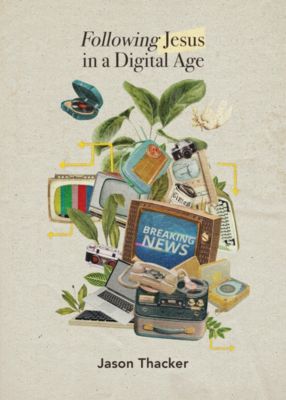
Take time this week to slow down amid the technological rat race and think deeply about some of the pressing questions generative AI poses.
By Jason Thacker
Ministry is hard work, as pastors face both the opportunities and challenges of leading God’s people in the paths of wisdom and righteousness amid the complexities of the day. Every day pastors hear a host of questions they might not be prepared to answer straight out of seminary or elder training. Even seasoned pastors face questions they may not be ready to answer, given how quickly society and culture shift.
In light of the unique calling on pastors to protect and equip God’s people, ministry can be an exceptionally challenging task in an age of emerging technologies. Technology is everywhere we look today. Our devices become second nature in all of our lives and may even begin to feel like small extensions of ourselves given their ubiquity and convenience factor.
One of the most common questions I get from pastors and ministry leaders is how to think about emerging technologies like artificial intelligence (AI). It seems everywhere we turn people are asking questions about the use and misuse of these tools. From questions of work and warfare to the immense challenges of how we understand our human identity, AI is causing us to ask fundamental questions humanity has always asked but in light of new opportunities.
Pastoral wisdom
Pastoring in a digital age requires leaders to slow down and think deeply about both the opportunities and the challenges the church faces today, especially with tools like AI. Wisdom in a digital age isn’t reducible to a quick fix or to-do list item that we simply check off and move on. It requires hard work, deep thought, and a commitment to God’s Word as our sufficient guide to the Christian life—no matter what challenges present themselves.
You already have a lot on your plate, and you may wonder where to start thinking about these technologies that are revolutionizing our lives and disrupting so much of our society. Here are four quick things you should know about generative AI and how to begin cultivating pastoral wisdom in a digital age:
1. Technology is not neutral
Before one dives into the should and should nots of the Christian life with AI, we must first acknowledge some foundational truths about all technologies. It has been rightly said that the public square is not neutral, as someone’s vision of the good life is being promoted. Similar to this reality is the fact that no piece of technology is inherently neutral.
This means every device, service, or platform you use is designed to shape how you interact with the world around you for both good and ill. Technology shapes our view of God, ourselves, and the world around us. This is true of all technologies since the beginning of time.
“Technology shapes our view of God, ourselves, and the world around us. This is true of all technologies since the beginning of time.” — @jasonthacker Click To TweetOur tools shape our perspectives of the most important things in life and every technology has a prejudice and values. Some are by design, reflecting particular corporate values. Others may be unintentionally promoted. But nothing is neutral. This is especially true of generative AI systems like OpenAI’s suite of apps including ChatGPT and DALL·E 3 as well as others like Google Bard, Bing, Grammarly Go, and many more.
Not only do designers’ and developers’ values shape the answers or outputs these systems produce, but the vast array of data inputs from countless, often unnamed sources, are also shaping them. While these tools can be extremely useful in certain contexts, we must not assume these systems are neutral toward the big questions of life. Everything is promoting some worldview or holistic outlook on life at the expense of others.
This truth should cause us to slow down enough to ask the right questions and recognize how these tools might be shaping our lives in ways that are contrary to our faith. Some vision of the good is being promoted. The question is which one, by whom, and for what purpose?
2. Everyone in your congregation is already using AI whether they realize it or not
If you ask those in your congregation if they are using AI on a daily basis, you might be surprised at the number of people who say they’re not. But if this technology is really everywhere (and it is), then it is most likely the case that people simply do not recognize how pervasive these tools have become in our society today.
From communication via email and social media to our online shopping and even the stock market, AI tools undergird so much of our contemporary society and have for many, many years behind the scenes. With the meteoric rise of commercial generative AI systems in recent years, the ubiquity of AI will only rise.
As a pastor seeking to equip your people to navigate these realities, it is good for you to remember and teach that everyone is already using these tools and being shaped by them, whether they recognize it or not. As you think about and prepare to equip your people on these important issues, remember your task is to train your people for the world they already inhabit, not just some futuristic vision of what might come.
While we long for and prepare for the coming of Christ, we are all called to be faithful in loving God and loving our neighbor exactly where He has placed us today. This temptation to think of AI as something like a far-off reality to be dealt with “someday” is extremely common, especially in light of the onslaught of other pressing challenges we face each day in pastoral ministry.
3. AI can become a crutch if used if unrighteous ways
One of the biggest challenges facing church leaders today with AI is how these tools are becoming so common yet often marketed as a shortcut or time saver amid our ever-expanding to-do list. I teach college students and I am shocked at the messages companies send about how generative AI can save them time, improve “their” writing, and help them achieve their goals.
While there are countless ethical ways to use these tools, we must remember AI can become a crutch we over-rely on because of its immense convenience. Currently, many of these systems produce basic, introductory-level material, but they are only getting better. This will increase the temptation to use them in unethical ways and will likely take away a key aspect of learning. True education isn’t simply about information transfer nor about getting ahead. It is about a holistic transformation into the people God calls us to be. Shortcutting that transformative process in the name of efficiency and convenience runs contrary to the call of wisdom.
“True education isn’t simply about information transfer nor about getting ahead. It is about a holistic transformation into the people God calls us to be.” — @jasonthacker Click To TweetRemind your people (as well as yourself) that taking the quick route or the convenient path is not always wise and righteous. We must slow down enough in our age of AI to ask not only what virtues we are teaching others, but also how these tools might short-circuit the transformative aspect of true discipleship.
Especially as these tools are marketed with slick campaigns meticulously designed to shore up the profit line, we must remember any attempt to pass off someone’s (or something’s) work as your own is deceptive and the antithesis of the Christian’s calling to live with integrity whether in the pulpit, classroom, business meeting, or wherever else God has placed you.
4. The Bible is more than sufficient for the challenges we face
As pastors committed to God’s Word, this last one may seem self-explanatory, but it is crucial to understand today. So often, when people in and outside the church think about the Bible, we see an outdated relic that gives some good advice but is simply ill-equipped to truly navigate the contemporary challenges before us, especially with technology and AI. While it is true that neither Jesus nor Paul spoke directly about AI, they nevertheless model what true Christian discipleship looks like and the principles by which we are to pursue wisdom for the moral life.
While some of the challenges we face seem novel, at their core, they are the same fundamental questions humanity has always asked, simply in light of new opportunities. The horizon of what is possible might shift given the advances of the day, but the core questions and answers do not.
“Whether it be questions of what a human being is in an age of machines or how we are to conduct ourselves amid other pressing social challenges, the Scriptures are more than sufficient for the task ahead.” — @jasonthacker Click To TweetThe Bible is God’s gift to us and contains all that is necessary for salvation as well as how we are to walk the straight and narrow path of the Christian life. Whether it be questions of what a human being is in an age of machines or how we are to conduct ourselves amid other pressing social challenges, the Scriptures are more than sufficient for the task ahead.
Love God and neighbor
As you prepare to lead your church in this age of AI and other emerging technologies, remember you are not alone and nothing you face catches God off guard. Remember the fundamental calling on the Christian to love God and love our neighbor as ourselves in fulfillment of the Great Commission to go and make disciples never changes.
Take time this week to slow down amid the technological rat race and think deeply about some of the pressing questions generative AI poses. Model for your people how to engage these issues from a place of hope rooted in both uncompromised truth and uncompromised grace.
For permission to republish this article, contact Marissa Postell Sullivan.

Jason Thacker
Jason serves as assistant professor of philosophy and ethics at Boyce College and Southern Seminary. He also is a senior fellow and director of the research institute at The Ethics and Religious Liberty Commission.











